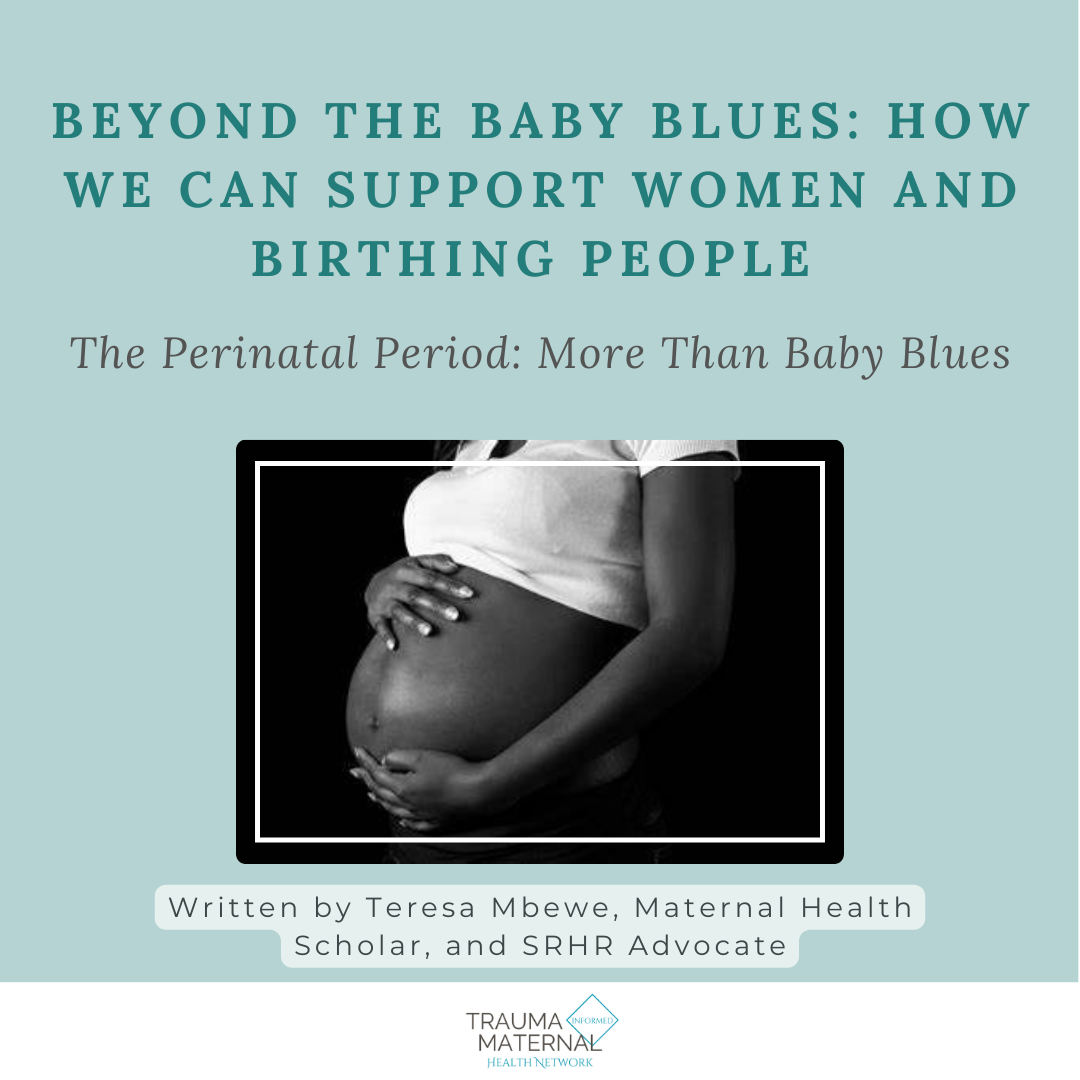Breaking the Silence: Understanding and Supporting Latin Perinatal Mental Health
Written by Guest Blogger Elle Murphy, MSW, LSW, Certified Postpartum Doula
The journey to motherhood is filled with joy, celebration, and, for some, mental health challenges. For Latina women, mental health challenges often go unrecognized and untreated. Mothers of color experience postpartum depression at a rate of 38% compared to up to 21% of all new mothers (Gress-Smith et al., 2012; Wisner et al., 2013). Perinatal mental health issues within the Latin community face barriers rooted in cultural beliefs, systemic inequities, and healthcare disparities
The Hidden Struggle
Latinas experience perinatal depression and anxiety and are significantly less likely to seek or receive appropriate mental health care, and 60% of Black and Latina mothers do not receive any treatment or support services for perinatal mental health (Kozhimannil et al., 2011). Cultural concepts like Marianismo – the idealization of motherhood and self-sacrifice- can create immense pressure to acknowledge their struggles and ask for help.
The stigma surrounding mental health in Latin cultures often labels emotional difficulties as personal weakness or spiritual failing. Phrases like “echale ganas” (put in effort) or “no seas dramatica (don’t be dramatic) can dismiss legitimate mental health concerns, leaving mothers to suffer in silence.
Languages and Access Barriers
Language barriers compound these challenges significantly. Many Latinas prefer to discuss intimate topics like mental health in their native language or with therapists who look like them. Yet bilingual mental health providers remain scarce. When seeking help, mothers may encounter intake forms, diagnostics, and treatment approaches developed without cultural context, potentially leading to misdiagnosis or inadequate care.
Economic factors also play a crucial role. Many Latina families face financial constraints that make accessing mental health services challenging. Insurance coverage gaps, transportation issues, and time off work can create insurmountable obstacles to receiving care.
Cultural Strengths and Protective Factors
While addressing challenges is crucial, it’s equally important to recognize the cultural strengths within the Latin community. Strong extended family networks, spiritual beliefs, and community support systems can serve as powerful protective factors for maternal mental health.
Familismo – a key cultural value in Latin American cultures that emphasizes strong family loyalty, interconnectedness, and prioritizing family needs above individual ones – can be leveraged to create comprehensive support systems for struggling mothers.
Traditional healing practices and spiritual beliefs should be integrated respectfully into modern treatment approaches. Many Latinas find comfort in prayer, herbal remedies, or consulting trusted community members, and these practices complement professional mental health care.
Building Culturally Responsive Care
Healthcare providers must move beyond one-size-fits-all approaches to develop culturally responsive perinatal mental health care. This includes:
Training and Awareness: Education around cultural factors affecting Latin maternal mental health, including the impact of immigration status, acculturation stress, and intergenerational trauma, to name a few.
Language Accessibility: Offering services in Spanish and training bilingual providers helps ensure accurate communication and for native Spanish speaking clinicals, a cultural understanding.
Family Centered Approaches: Recognizing the importance of extended family in Latin cultures and involving supportive family members in treatment planning when appropriate.
Community Partnerships: Collaborating with community organizations, religious institutions, and cultural centers to reach mothers who might not otherwise have access to traditional health settings.
Supporting Latina Mothers
Families and communities can play vital roles in supporting maternal mental health by normalizing conversations about emotional well-being, recognizing warning signs, and connecting mothers with appropriate resources. Simple acts like asking "¿Cómo te sientes?" (How do you feel?) and listening without judgment to how their journey may look different than those of other mothers will make a significant difference.
Healthcare systems must also address structural barriers by providing interpreter services, extending clinic hours, offering telehealth options, and training staff in cultural humility and trauma-informed care approaches.
Moving Forward
Breaking the silence around Latin perinatal mental health requires collective action from healthcare providers, families, and communities. By acknowledging cultural barriers while building on existing strengths, we can create inclusive and effective support systems for Latina mothers.
Every mother deserves to experience the joy of motherhood without the burden of untreated mental health challenges.
Through culturally responsive care, community support, and continued advocacy, we can ensure that Latina mothers receive the comprehensive care they need to thrive during this transformative time.
The path forward involves far more than treating symptoms, but addressing the systemic inequities that contribute to disparities in maternal mental health outcomes. Only through this comprehensive approach can we truly support the mental health and well-being of all mothers in our communities.
Sources:
Gress-Smith, J. L., Luecken, L. J., Lemery-Chalfant, K., & Howe, R. (2012). Postpartum depression prevalence and impact on infant health, weight, and sleep in low-income and ethnic minority women and infants. Maternal and Child Health Journal, 16, 887–893. https://doi.org/10.1007/s10995-011-0812-y
Policy Center for Maternal Mental Health. (2024, October). Latina and Hispanic Maternal Mental Health [Issue Brief]. http://www.doi.org/10.69764/LHIB2024
- - - - -
Guest Author: Elle Murphy, MSW, LSW, Certified Postpartum Doula
As a Latina therapist, Elle provides trauma-informed, culturally sensitive support to families during pregnancy and the postpartum period. She combines clinical expertise with perinatal experience as a doula to deliver compassionate, evidence-based care that empowers parents.
Website: https://www.pmhcchicago.com/elle
Instagram: https://www.instagram.com/yourfriend.elle/
Directory Listing: https://directory.maternaltraumasupport.com/search/elle-murphy-msw-lsw.html
About the Trauma-Informed Maternal Health Directory
Liz Gray, LCSW and Olivia Verhulst, LMHC, PMH-C— co-founders of the Trauma-Informed Maternal Health Directory— are clinical psychotherapists with a deep passion for increasing accessibility of trauma-informed care to the maternal health population.
They created this specialized directory to connect women & birthing people to trauma-informed health & mental health providers who specialize in infertility, pregnancy, postpartum, and new parenthood.
Search the directory: https://directory.maternaltraumasupport.com/
Interested in writing a guest blog post?
If you are a trauma-informed provider who works with the perinatal population, submit a blog proposal HERE!
Please make sure the article is original content that aligns with our values of safety, inclusion, transparency, collaboration, empowerment, and support.





